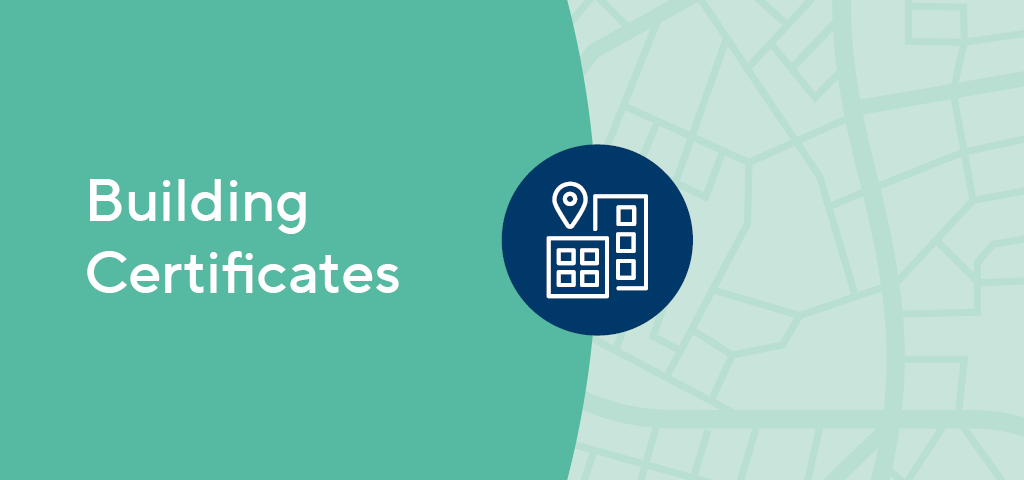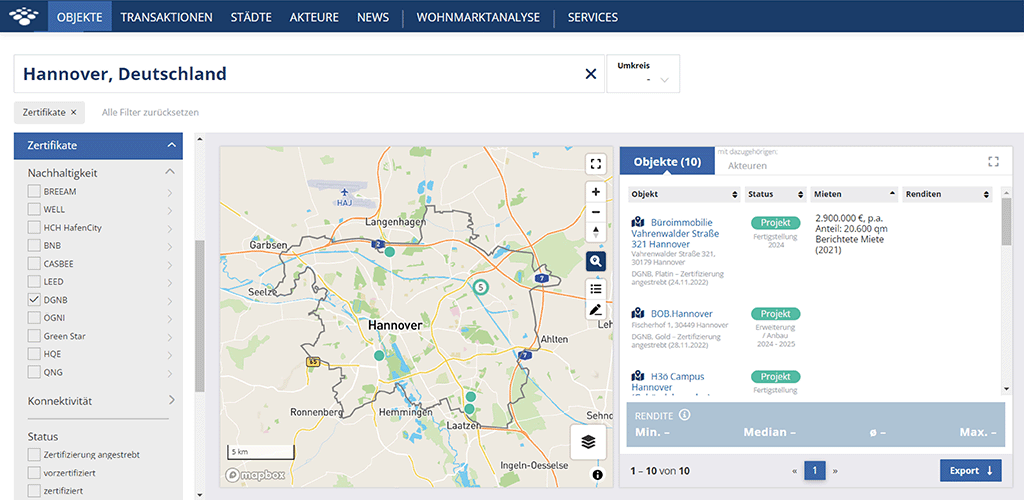Important Certifications in the Real Estate Industry
The way we work, live and move in buildings has significantly changed in recent years. Consequently, buildings also need to adapt and be optimised for sustainability and connectivity. Building certifications in the institutional real estate industry are becoming increasingly important in this context. They provide investors, landlords and tenants with valuable information about the quality, sustainability, connectivity and efficiency of a building. In this post, we provide an overview of the certificates that are now taken into account in IZ Research.
There are numerous (inter)national building certification systems used in the institutional real estate industry. These different certification systems and institutes offer a comprehensive range of assessment methods to measure the sustainability, energy efficiency, environmental performance, user-friendliness as well as the connectivity of buildings. By selecting the right certification scheme for a particular project, builders, investors and occupants can ensure that their buildings meet the highest standards and minimise their environmental impact.
An overview of the certifications now taken into account by IZ Research:
Building Certifications for Sustainability
- BREEAM (Building Research Establishment Environmental Assessment Method) is a certification scheme developed in the UK and administered by the Building Research Establishment (BRE). It assesses buildings in various categories such as energy, water, materials, waste and health. (Source: https://bregroup.com/products/breeam)
- The WELL Building Standard is an internationally recognised scheme that focuses on the health and wellbeing of building occupants. Administered by the International WELL Building Institute (IWBI), it conducts building assessments in categories such as air quality, water quality, light, acoustics and materials. (Source: https://www.german-gba.org/en/well)
- The HCH certificate (HafenCity Hamburg) is a special certification system for buildings and city districts in the port city of Hamburg. It is based on criteria such as energy efficiency, environmental compatibility, social sustainability and economic performance. (Source: https://www.hafencity.com/en/urban-development/sustainability)
- BNB (Bewertungssystem Nachhaltiges Bauen) is a German certification system for public buildings. It evaluates buildings in ecological, economic and socio-cultural categories as well as in the area of technology and processes. (Source: https://www.bnb-nachhaltigesbauen.de/en/assessment-system)
- CASBEE (Comprehensive Assessment System for Built Environment Efficiency) is a Japanese certification system developed by the Japan Sustainable Building Consortium. It evaluates buildings in terms of environmental quality, resource efficiency and social sustainability. (Source: https://www.ibec.or.jp/CASBEE/english)
- LEED (Leadership in Energy and Environmental Design) is an internationally recognised system developed by the US Green Building Council (USGBC) that rates buildings on their sustainability and energy efficiency. (Source: https://www.german-gba.org/en/leed)
- The DGNB certification (Deutsche Gesellschaft für Nachhaltiges Bauen) is a system developed in Germany that is also internationally recognised. It places particular emphasis on the ecological, economic and socio-cultural quality of buildings. (Source: https://www.dgnb-system.de/en/system)
- ÖGNI (Österreichische Gesellschaft für Nachhaltige Immobilienwirtschaft) is an Austrian organisation that applies and adapts the DGNB system in Austria to assess the sustainability of buildings and real estate projects. (Source: https://www.ogni.at)
- Green Star is an Australian certification system administered by the Green Building Council of Australia (GBCA). It rates buildings in various categories such as energy, water, materials, waste and interior quality. (Source: https://new.gbca.org.au/green-star/exploring-green-star)
- HQE (Haute Qualité Environnementale) is a French certification system that focuses on green building and sustainability. It is managed by the Association pour la Haute Qualité Environnementale (Cerway) and carries out building assessments in areas such as energy efficiency, environmental performance and user comfort. (Source: https://www.qualitel.org/professionnels/certification-et-labels/certification-hqe-residential-international)
- QNG (Qualitätsstandard Nachhaltiges Bauen) is a certification system from Germany that focuses on the assessment of residential buildings. The focus is on ecological, economic, functional and socio-cultural aspects of sustainable construction. (Source: https://www.bmwsb.bund.de/Webs/BMWSB/DE/themen/bauen/bauwesen/qng/qng-node.html)
Building Certification for Connectivity / Smart Building
- WiredScore is an internationally recognised certification system that assesses the connectivity and technology services offered by commercial properties. The certificate assesses network infrastructure, broadband access, redundancy, technology support and planning for future technological developments, among other things. It was originally developed in New York City and has spread worldwide. (Source: https://wiredscore.com/certify-a-building/wiredscore)






